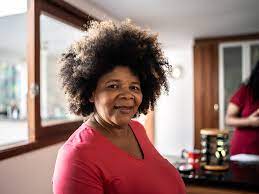Do you constantly worry about germs and contamination? Are you obsessed with symmetry and orderliness? If so, you may be experiencing symptoms of OCD. OCD is a mental illness that affects millions of people all over the world. It can be difficult to diagnose, but it is important to get help if you think you may have OCD. In this blog post, we will discuss how to diagnose OCD. We will also provide tips to get help.
Contents
How To Diagnose OCD?
 This is a question that people asked a lot. And it’s not an easy one to answer because there is no one definitive answer. In fact, a diagnosis of OCD is kind of like a puzzle. And each piece has to fit just right in order for the diagnosis to be accurate.
This is a question that people asked a lot. And it’s not an easy one to answer because there is no one definitive answer. In fact, a diagnosis of OCD is kind of like a puzzle. And each piece has to fit just right in order for the diagnosis to be accurate.
Moreover, how to diagnose OCD is really not that different from how you would go about getting diagnosed with any other mental disorder. There is actually a process that mental health professionals use to make a diagnosis. It’s called the Diagnostic and Statistical Manual of Mental Disorders, or the DSM for short.
Steps Of OCD Diagnosis
Diagnosis for OCD is not as easy as going to the doctor and telling them your symptoms. Only a trained professional, like a psychiatrist, can give you a diagnosis.
There are three steps involved in getting diagnosed with OCD.
The first step is to meet with a mental health professional and talk about your symptoms. They will ask you questions about your thoughts, feelings, and behaviors.
The second step is for the mental health professional to do a physical examination. This is to rule out any other physical conditions that could be causing your symptoms.
The third and final step is for the mental health professional to give you a psychological evaluation. This usually involves taking some tests that measure your level of OCD symptoms.
Once all three steps have been completed, the mental health professional will be able to give you an official diagnosis of OCD.
How Professional Help You To Diagnose OCD?
Only a professional can give you a formal diagnosis of OCD. A professional will ask about your thoughts, feelings, and behaviors to get a sense of whether they meet the criteria for an OCD diagnosis. They may also ask about your family history and any other mental health conditions you have.
They mainly lookout for three major things, such as;
- If the person has obsessions
- That person reacts compulsively to those obsessions
- If these both take a lot of time to completion of tasks
These are the three major criteria that doctors and psychiatrists use to diagnose OCD. Other than this, they also look for the severity of the symptoms, how much it is impacting your life, and if you have any other mental health conditions.
You can get diagnosed with OCD by seeing a mental health professional, such as a psychiatrist, psychologist, or licensed clinical social worker. You may also be able to get a referral from your primary care doctor.
How To Find The Right Professional To Diagnose OCD?
 It is important to find a professional who is qualified to help you with your OCD. You can ask your primary care physician for a referral to a mental health specialist.
It is important to find a professional who is qualified to help you with your OCD. You can ask your primary care physician for a referral to a mental health specialist.
You can also look for a therapist or psychiatrist who is experienced in treating OCD. For the best therapist, you can try Mantra Care. The type of professional you see will likely depend on the severity of your OCD and your preference. Mantra Care provides an app that connects people with mental health professionals.
These professionals are qualified to help them with their specific needs. You can download the app for free on the App Store or Google Play store. You can also look for a support group in your area. These groups provide social and emotional support for people with OCD.
Things to keep in mind
When you are looking for a professional, there are a few things you should keep in mind. Make sure to find someone who:
- has experience in treating OCD
- uses evidence-based treatments
- is qualified to help you with your specific needs
- makes you feel comfortable and safe
You should also make sure to ask about the cost of treatment and the length of time it will take. Treatment for OCD can be expensive, so you want to make sure you can afford it. The length of treatment will vary depending on the severity of your OCD. In most cases, treatment will last for several months to a year.
What Are The Tips To Get Help For OCD?
 It is important to realize that you are not alone in your journey with OCD. Many people suffer from this mental illness, and there is help available. Here are some tips on how to get help for OCD:
It is important to realize that you are not alone in your journey with OCD. Many people suffer from this mental illness, and there is help available. Here are some tips on how to get help for OCD:
Talk to someone who understands
This is probably the most important tip on this list. When you are struggling with OCD, it can be difficult to talk to people who don’t understand what you are going through. Find someone who does understand, whether that is a friend, family member, therapist, or doctor. This person can provide support and understanding when you need it most.
Talk to a therapist
Therapies play a big role in helping people with OCD manage their symptoms. If you are struggling with OCD, consider talking to a therapist. They can help you understand your thoughts and feelings, and develop coping mechanisms to deal with them. Moreover, there are different types of therapy that can be effective for OCD, so you may want to talk to a few different therapists. For that, Mantra Care is the platform that can help you with the right mental health professional. Book your free consultation today with a Mantra Care counselor.
Join a support group
Support groups can provide valuable information and support for people with OCD. They can be a great place to share your experiences and connect with others who understand what you are going through. These groups are believed to be helpful in managing OCD. As they provide you a space to share your experiences, it also helps in normalizing them.
Take medication
For some people, medication is an important part of treatment for OCD. If you are considering taking medication, talk to your doctor about the risks and benefits. There are several types of medication that can be effective for OCD and can be really effective in treating OCD. Some of these are:
- Selective serotonin reuptake inhibitors (SSRIs)
- Tricyclic antidepressants (TCAs)
- Monoamine oxidase inhibitors (MAOIs)
Self-care techniques
 It is important to take care of yourself when you have OCD. This means getting enough sleep, eating a balanced diet, and exercising. These are the healthy coping mechanisms that can help you deal with the symptoms of OCD. Moreover, it is also important to find healthy ways to relax and destress. Self-care always impacts positively on mental health.
It is important to take care of yourself when you have OCD. This means getting enough sleep, eating a balanced diet, and exercising. These are the healthy coping mechanisms that can help you deal with the symptoms of OCD. Moreover, it is also important to find healthy ways to relax and destress. Self-care always impacts positively on mental health.
Be patient
Being patient is the key in the journey of recovery from OCD. It takes time to develop healthy coping mechanisms and learn how to manage your symptoms. Recovery is a process, and it is important to be patient with yourself. In fact, it is often said that “recovery is a marathon, not a sprint.”
If you or someone you know is struggling with OCD, remember that there is help available. These are just some of the ways that you can get help for OCD. If you need more information or support, please reach out to a mental health professional. Mantra Care can help you find the right therapist for your needs. Book your free consultation today.
Conclusion
To conclude, how to diagnose OCD is that it can be tricky and difficult. But ultimately it’s worth it to get the help and support you need. There are many resources available to help guide you through the process. Moreover, diagnosis is the first step in treatment, so it’s essential to get started on the road to recovery.
Therefore, if you or someone you know is struggling with OCD, don’t hesitate to reach out for help. The sooner you get started on treatment, the better. If you’re still not sure where to start, consider talking to Mantra Care professionals. They can provide you with resources and support to help you get started on your journey to recovery. Thanks for reading!
If you are looking for affordable Online OCD Counseling MantraCare can help: Book a trial OCD therapy session


